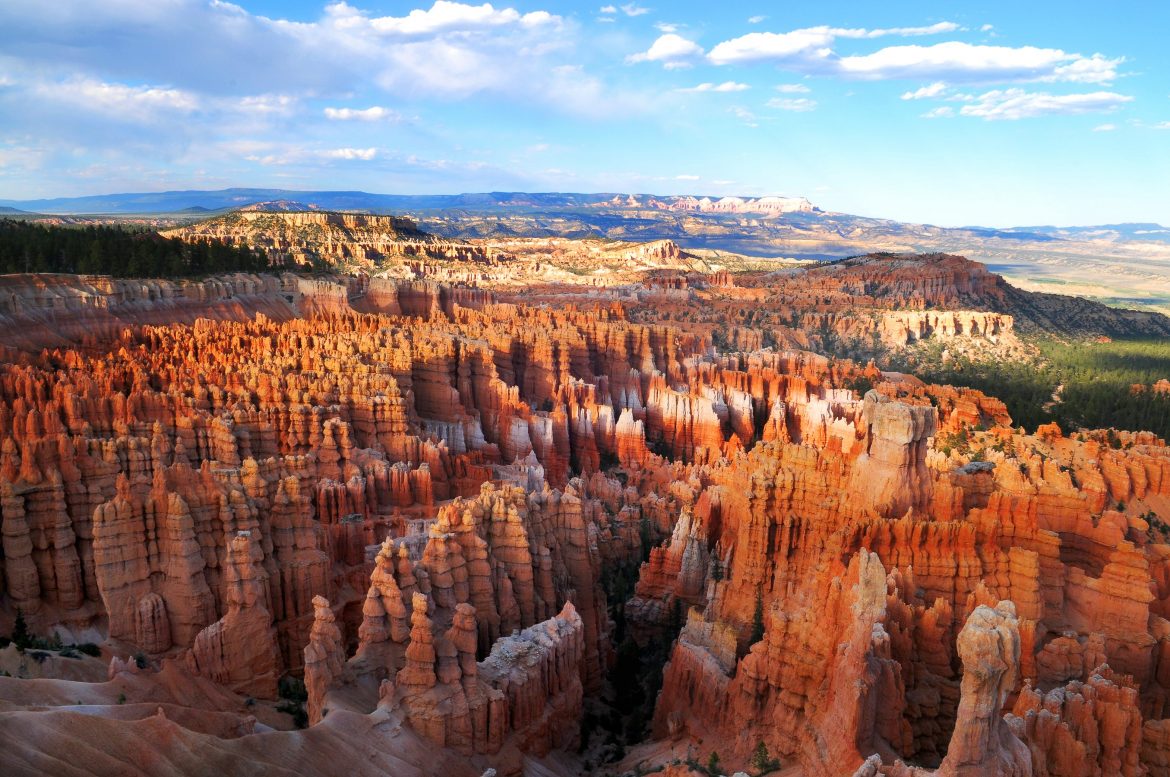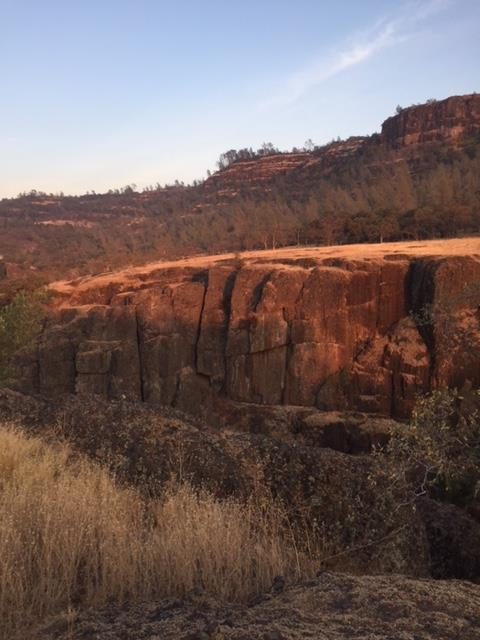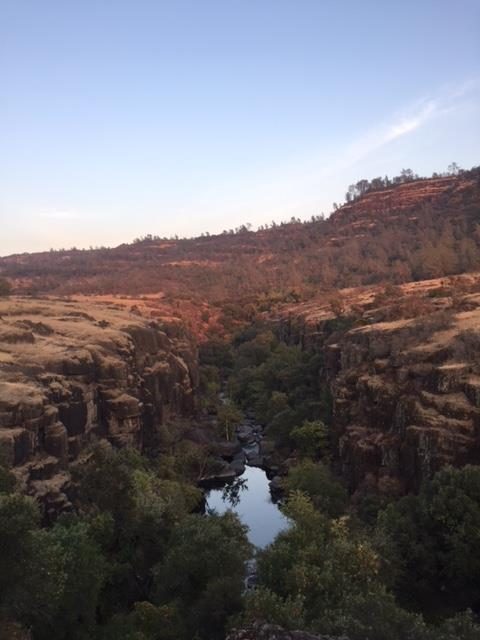Driving down the short, steep grade into the canyon just beyond town, I passed a score of young people with shovels and buckets, obviously returning from trail work. From that point on I saw no one in three hours.
I parked in the last parking area before the locked gate at the end of the bumpy, gravel road. It’s less than a half-mile walk into the gorge, affording a stupendous view for meditation.
The “Diablo” winds from north to south have ceased in recent days, and smoke from the fires in wine country to the south have blanketed the skies in northern California in an otherworldly haze.
The hills are now bone dry, and desolate beyond description. Normally I welcome, even relish solitude, but there was something unearthly in the atmosphere that brought forth deep fear.
The combination of tinder-dry hillsides, total solitude, and miasma lent a dreamlike quality to the experience. It was no daydream however, but reality, outwardly and inwardly—without the division between “outward” and “inward.”
Except for one unseen plane, there wasn’t a sign or sound of humans and the man-made world for hours. Due to the physical and metaphysical conditions, I felt more alone than I ever have except while backpacking by myself. But was I alone?
If you’ve ever spent a night or two in the wilderness alone, you know there is a primal fear at the core of human consciousness.
Though it’s been a long time since I backpacked alone, I recall the ancient fear and chaotic mental activity the solitude induced on the first night. Why did I put myself through it?
At a deep level I wanted to stand alone and face fear. Not just ‘my fear,’ but fear itself.
Sure enough, after two days and nights of remaining with what is, psychological fear dissolved, like a bad dream on a beautiful morning.
Sitting on the lip of the gorge yesterday, a question I read earlier in the day came to mind: Is it that the whole structure of the cell is frightened of not being?
I don’t think the cells themselves are frightened of not being. Even the lowliest insect is imbued with a survival instinct, which, when confronted with danger, incites the flight or fight response. So fear is part of the survival instinct that is intrinsic to every living thing.
The questions, it seems to me are: Do we humans tend to live in fear because we’re social animals? Is fear intrinsic to the neo-mammalian brain dominated by symbolic thought?
Certainly the fear of standing alone, or even being alone for a few hours in nature, is linked with our social natures. Is fear the essence of conformity?
For tens of thousands of years, being cast out from the group into the wilderness meant almost certain death. There’s a subconscious memory of that fear, which infuses and confuses us in the modern world much more than we think.
In short, fear a necessary survival reaction in animals, but an unnecessary psychological condition in humans. It isn’t the condition of life that produces fear, but the accretion of conditioning that produces fear.
Isolation and loneliness lie at the root of fear within us. Of course there is the fear of poisonous snakes, for example, which is both instinctual and learned (the latter being fitting or phobic). But I’m referring the deep need to be part of a group, and the inability to be truly alone.
The root meaning of the word alone is “all one.” Initially what I experienced in the desolate canyon beyond town was not aloneness, or even solitude, but isolation and loneliness. This is what gave rise to fear.
Fear was the theme of the day, since I also read this bit of inanity yesterday: “Fear causes people to privilege psychological security over liberty.”
That evinces not only an utter lack of understanding of fear, but also a failure to perceive the fact that there is no such thing as psychological security. The need for security destroys security, for oneself and for others.
Psychological thought, fear and time are inextricably related, and form a single movement. Solitude, aloneness and isolation are distinct, though easily confused and conflated qualities of being.
Solitude is essential to aloneness, as all-oneness. Paradoxically, watchful solitude is also necessary to uncovering and transcending isolation, loneliness and fear.
When solitude brings forth loneliness, observe it and remain with it. Then solitude is the soil that engenders freedom from loneliness and fear, and opens the door to the sacred.
Martin LeFevre



